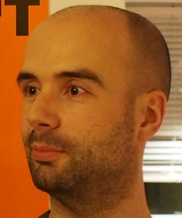Play Ethics: Values, Virtues, and Videogames
Interactive media and games increasingly pervade and shape our society. In addition to their dominant roles in entertainment, video games play growing roles in education, arts, science and health. This seminar series brings together a diverse set of experts to provide interdisciplinary perspectives on these media regarding their history, technologies, scholarly research, industry, artistic value and potential future. As the speakers and title suggest, the series also provides a topical lens for the diverse aspects of our lives.
NEW DAY AND NEW LOCATION
Join us every TUESDAY From September 22nd until December 1st from 12pm-1pm in Herrin T175.
Can’t make it to the talk, but have a question for Miguel? Submit your question HERE and it will be asked. By submitting your question, you’re allowing mediaX to use and record your submission.
Also listed as one-unit course BIOE196. For more information contact Ingmar@stanford.edu
Never Miss An Event; Join Our Email Community
Presenter

Miguel Sicart, Play Ethics: Values, Virtues, and Videogames. What is the moral purpose of playing? What roles do playthings, from games to other forms of interactive entertainment, play in shaping our culture? Are games, and play, in realms beyond morality, or is play an intrinsically moral activity? And how can we make games more ethically compelling, while still respecting the creative nature of play? In this talk I will address the complicated relation between play and morality, looking specifically at the ethics of computer games. Drawing on virtue ethics, philosophy of information, and play theory, I will introduce a model of understanding ethics in digital games, as well as ways of analyzing, and designing, ethical play experiences.
Miguel Sicart is a game studies scholar with a background in philosophy of technology, literature, and games studies. Recent publications include “Play Matters,” “Beyond Choices: The Design of Ethical Gameplay,” and “The Ethics of Computer Games.” Dr. Sicart graduated from the IT University of Copenhagen with a PhD in Game Studies. He also has an M.A. in Literary Theory and a BA in Spanish Philology from the University of Santiago de Compostela.